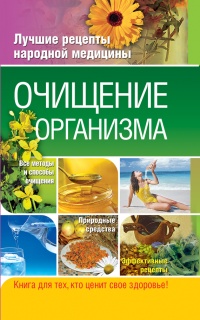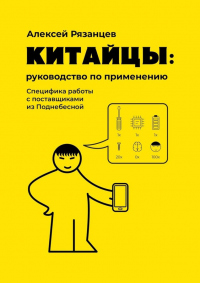Книга Пятый элемент здоровья. Как использовать менструальный цикл для поддержания жизненно важных функций организма - Лиза Хендриксон-Джек
Шрифт:
Интервал:
Закладка:
48. Odeblad, Erik. “The discovery of different types of cervical mucus and the Billings Ovulation Method.” Bulletin of the Natural Family Planning Council of Victoria 21, no. 3 (1994): 14.
49. Там же.
50. Там же, 26.
Глава 4
1. Treloar, Alan E., Ruth E. Boynton, Borghild G. Behn, and Byron W. Brown. “Variation of the human menstrual cycle through reproductive life.” International Journal of Fertility 12, no. 1 Pt 2 (1967): 77–126.
2. Harlow, Siobán D., and Sara A. Ephross. “Epidemiology of menstruation and its relevance to women’s health.” Epidemiologic Reviews 17, no. 2 (1995): 265–286.
3. Treloar, Alan E., Ruth E. Boynton, Borghild G. Behn, and Byron W. Brown. “Variation of the human menstrual cycle through reproductive life.” International Journal of Fertility 12, no. 1 Pt 2 (1967): 77–126.
4. Там же, 99.
5. Fehring, Richard J., Mary Schneider, and Kathleen Raviele. “Variability in the phases of the menstrual cycle.” Journal of Obstetric, Gynecologic, & Neonatal Nursing 35, no. 3 (2006): 376–384; Creinin, Mitchell D., Sharon Keverline, and Leslie A. Meyn. “How regular is regular? An analysis of menstrual cycle regularity.” Contraception 70, no. 4 (2004): 289–292; Münster, Kirstine, Lone Schmidt, and Peter Helm. “Length and variation in the menstrual cycle – a cross-sectional study from a Danish county.” BJOG: An International Journal of Obstetrics and Gynaecology 99, no. 5 (1992): 422–429; Treloar, Alan E., Ruth E. Boynton, Borghild G. Behn, and Byron W. Brown. “Variation of the human menstrual cycle through reproductive life.” International Journal of Fertility 12, no. 1 Pt 2 (1967): 77–126; Harlow, Siobán D., and Sara A. Ephross. “Epidemiology of menstruation and its relevance to women’s health.” Epidemiologic Reviews 17, no. 2 (1995): 265–286; Cole, Laurence A., Donald G. Ladner, and Francis W. Byrn. “The normal variabilities of the menstrual cycle.” Fertility and Sterility 91, no. 2 (2009): 522–527.
6. Fehring, Richard J., Mary Schneider, and Kathleen Raviele. “Variability in the phases of the menstrual cycle.” Journal of Obstetric, Gynecologic, & Neonatal Nursing 35, no. 3 (2006): 376–384.
7. Там же; Odeblad, Erik. “The discovery of different types of cervical mucus and the Billings Ovulation Method.” Bulletin of the Natural Family Planning Council of Victoria 21, no. 3 (1994): 1–31; Harlow, Siobán D., and Sara A. Ephross. “Epidemiology of Menstruation and its Relevance to Women’s Health.” Epidemiologic Reviews 17, no. 2 (1995): 265–286; Treloar, Alan E., Ruth E. Boynton, Borghild G. Behn, and Byron W. Brown. “Variation of the human menstrual cycle through reproductive life.” International Journal of Fertility 12, no. 1 Pt 2 (1967): 77–126; Chiazze, Leonard, Franklin T. Brayer, John J. Macisco, Margaret P. Parker, and Benedict J. Duffy. “The length and variability of the human menstrual cycle.” JAMA 203, no. 6 (1968): 377–380; Mumford, Sunni L., Anne Z. Steiner, Anna Z. Pollack, Neil J. Perkins, Amanda C. Filiberto, Paul S. Albert, Donald R. Mattison, Jean Wactawski-Wende, and Enrique F. Schisterman. “The utility of menstrual cycle length as an indicator of cumulative hormonal exposure.” The Journal of Clinical Endocrinology & Metabolism 97, no. 10 (2012): E1871–E1879; Landgren, B.-M., A.-L. Unden, and Egon Diczfalusy. “Hormonal profile of the cycle in 68 normally menstruating women.” Acta Endocrinologica 94, no. 1 (1980): 89–98; Cole, Laurence A., Donald G. Ladner, and Francis W. Byrn. “The normal variabilities of the menstrual cycle.” Fertility and Sterility 91, no. 2 (2009): 522–527; Creinin, Mitchell D., Sharon Keverline, and Leslie A. Meyn. “How regular is regular? An analysis of menstrual cycle regularity.” Contraception 70, no. 4 (2004): 289–292; Lenton, E.A., B.M. Landgren, L. Sexton, and R. Harper. “Normal variation in the length of the follicular phase of the menstrual cycle: effect of chronological age.” British Journal of Obstetrics and Gynaecology 91, no. 7 (1984): 681–684, 685–689; Hilgers, Thomas W. (2004). The Medical & Surgical Practice of NaPro Technology. Omaha, NE: Pope Paul VI Institute Press, 203–205; Matus, Geraldine (Ed.). “Statistical parameters of the menstrual cycle.” Justisse HRHP Training Program. Justisse College. Accessed January 23. 2017. www.justisse.ca/index.php/college/courseware/page/1074.
8. Harlow, Siobán D., and Sara A. Ephross. “Epidemiology of menstruation and its relevance to women’s health.” Epidemiologic Reviews 17, no. 2 (1995): 265–286; Landgren, B.-M., A.-L. Unden, and Egon Diczfalusy. “Hormonal profile of the cycle in 68 normally menstruating women.” Acta Endocrinologica 94, no. 1 (1980): 89–98; Mumford, Sunni L., Anne Z. Steiner, Anna Z. Pollack, Neil J. Perkins, Amanda C. Filiberto, Paul S. Albert, Donald R. Mattison, Jean Wactawski– Wende, and Enrique F. Schisterman. “The utility of menstrual cycle length as an indicator of cumulative hormonal exposure.” The Journal of Clinical Endocrinology & Metabolism 97, no. 10 (2012): E1871–E1879; Fehring, Richard J., Mary Schneider, and Kathleen Raviele. “Variability in the phases of the menstrual cycle.” Journal of Obstetric, Gynecologic, & Neonatal Nursing 35, no. 3 (2006): 376–384.
9. Creinin, Mitchell D., Sharon Keverline, and Leslie A. Meyn. “How regular is regular? An analysis of menstrual cycle regularity.” Contraception 70, no. 4 (2004): 289–292; Fehring, Richard J., Mary Schneider, and Kathleen Raviele. “Variability in the phases of the menstrual cycle.” Journal of Obstetric, Gynecologic, & Neonatal Nursing 35, no. 3 (2006): 376–384; Odeblad, Erik. “The discovery of different types of cervical mucus and the Billings Ovulation Method.” Bulletin of the Natural Family Planning Council of Victoria 21, no. 3 (1994): 1–31.
10. Odeblad, Erik. “The discovery of different types of cervical mucus and the Billings Ovulation Method.” Bulletin of the Natural Family Planning Council of Victoria 21, no. 3 (1994): 1–31; Fehring, Richard J., Mary Schneider, and Kathleen Raviele. “Variability in the phases of the menstrual cycle.” Journal of Obstetric, Gynecologic, & Neonatal Nursing 35, no. 3 (2006): 376–384.
11. Fehring, Richard J., Mary Schneider, and Kathleen Raviele. “Variability in the phases of the menstrual cycle.” Journal of Obstetric, Gynecologic, & Neonatal Nursing 35, no. 3 (2006): 376–384; Harlow, Siobán D., and Sara A. Ephross. “Epidemiology of menstruation and its relevance to women’s health.” Epidemiologic Reviews 17, no. 2 (1995): 265–286; Lenton, E.A., B.M. Landgren, L. Sexton, and R. Harper. “Normal variation in the length of the follicular phase of the menstrual cycle: effect of chronological age.” British Journal of Obstetrics and Gynaecology 91,

























